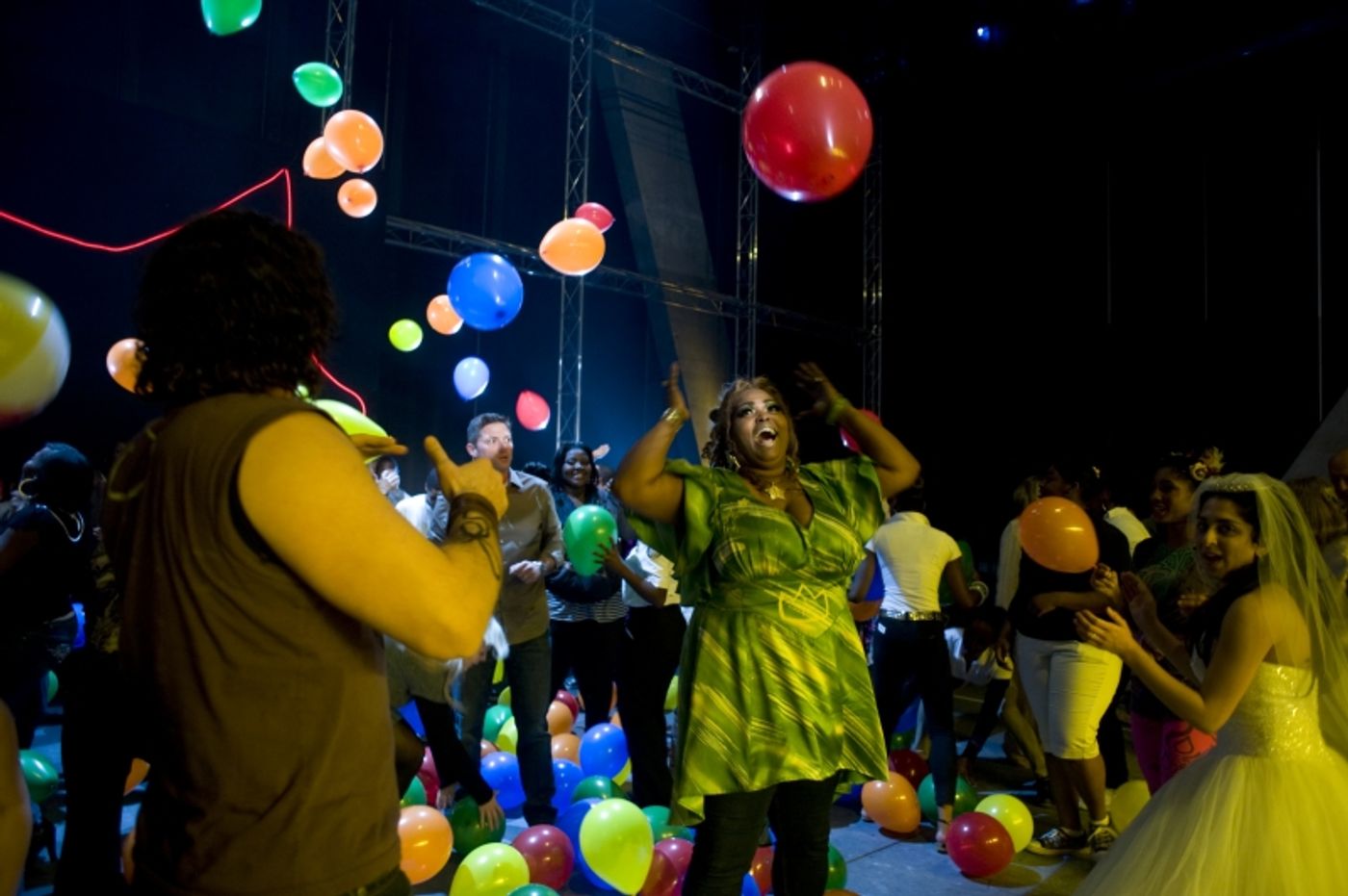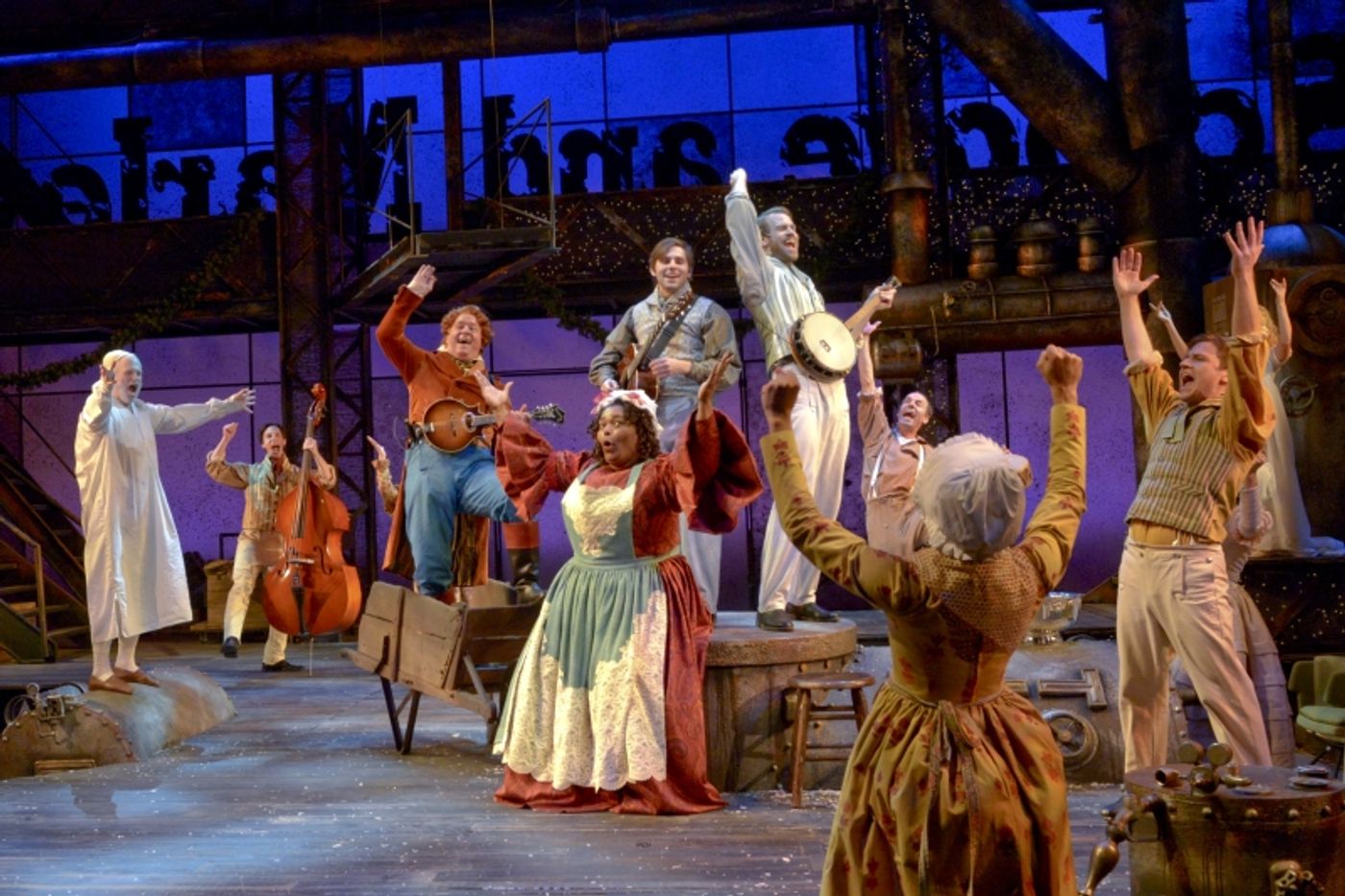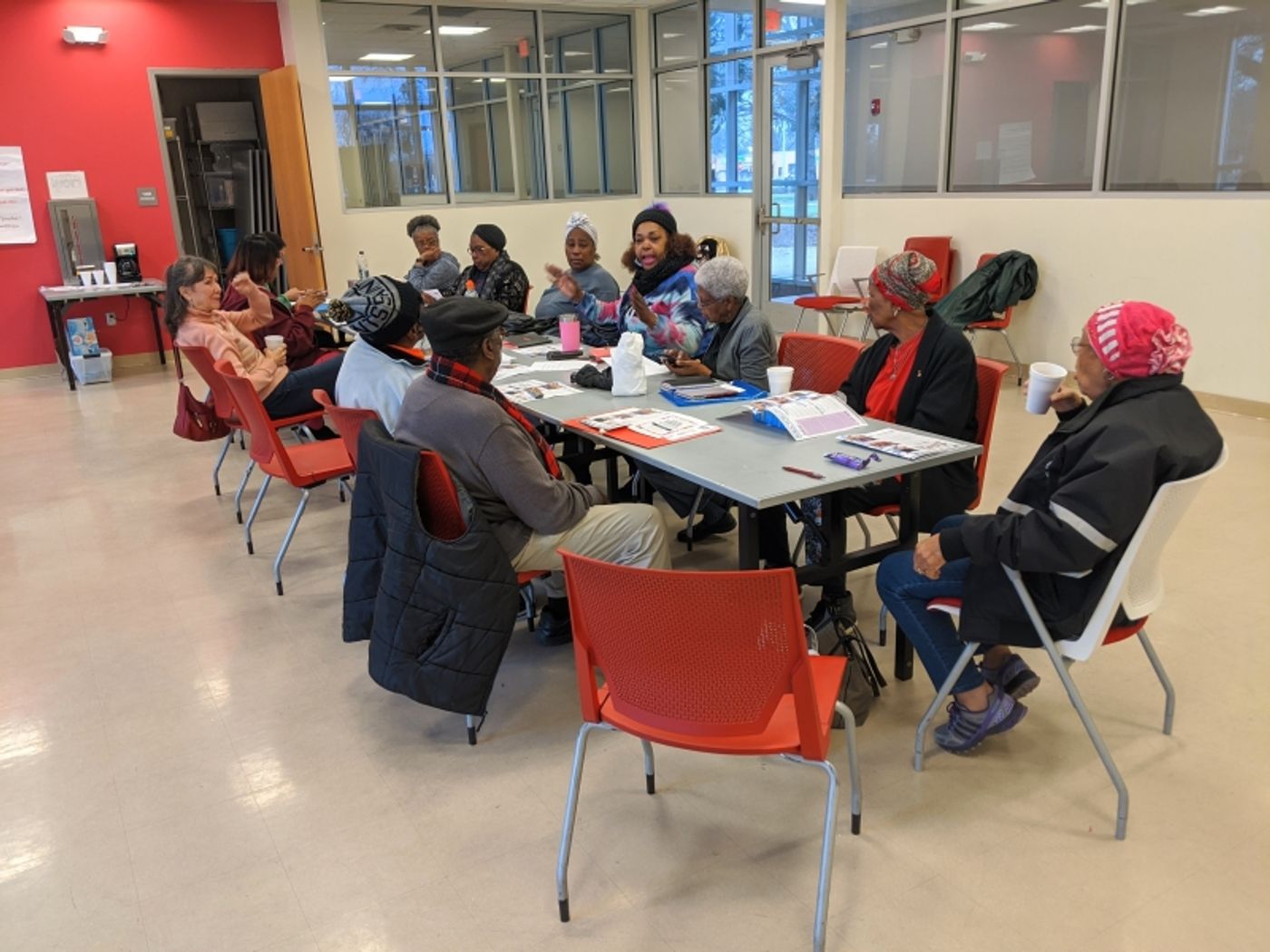Interview: Liz Mikel Celebrates Her Time in Dallas and Prepares for Broadway
Now celebrating 30 years with Dallas Theater Center, Liz Mikel speaks about her appreciation for Dallas organizations, her current and upcoming roles, and more!

Dallas native and 30 year Dallas Theater Center performer, Liz Mikel, is gifting the DFW metroplex with her presence for only a short while longer. (Don't worry. She'll be back!) Soon she is heading to Broadway to star as John Hancock in the upcoming female-casted revival of 1776.
BroadwayWorld spoke with Mikel about her appreciation for Dallas Theater Center, her current and upcoming roles, and more!
You've been with Dallas Theater Center for 30 years! Could you share a little bit about your time with DTC and the place it holds in your heart?
In the beginning of me coming to Dallas Theater Center, I had worked with my mentor, Akin Babatunde. I met him auditioning for another theater and not knowing that he was one of the company members at the time. This was in 1990 that we met, and in 1991, he brought me to Dallas Theater Center. He hand picked me to play the leading role of Sojourner Truth for the Teen Children's Theater, and I was blown away. It wasn't for the main stage; it was specifically a piece for young audiences. And the next thing I knew, I was a part of a company of actors that he had hand selected, alongside Black performers who wanted to hone their acting skills.
Akin Babatunde had an acting company under the umbrella of the larger acting company at the Theater Center. It was called Vivid Theater Ensemble. I was a member of Vivid, and it was because of my connection with Vivid that I met another one of my mentors, Tyrees Allen. He saw me on the show and said, "I love your work. Have you auditioned for A Midsummer Night's Dream? They're looking for a nontraditional casting." I said, "no, I'm not well versed in Shakespeare." He said, "come here, I'll work with you," and he worked with me, and I auditioned for that piece.
It blew my mind that I got into that piece. It was A Midsummer Night's Dream directed by David Petrarca from The Goodman Theatre. I played Mustard-Seed. It starred Michael Cerveris as Puck, and we had a Black Oberon, played by Tyrees Allen. Nance Williamson, who was one of the company members, played Titania. Well, fast forward to 2009 when we opened the Wyley Theater downtown in the Arts District, I was Titania.

It was just unreal to me to come to this theater and start out playing a fairy. I was in such awe with The Acting Company at that time. Akin Babatunde, Randy Moore, Nance Williamson, Kurt Rhoads, Sean Hennigan, Dee Hennigan, Steven Kalstrup, Bill Larson-these people who have been doing this thing longer than I have been alive, and I was just a wide-eyed artist that was excited to be in the room with them. They were embracing and welcoming. They just loved on me.
When we were getting ready for A Midsummer Night's Dream, we worked with a wonderful diction coach, Peggy Loft. Peggy had worked at Juilliard, SMU-extensive credits. Randy, playing Bottom, pulled me aside while we were in rehearsal and said, "I want you to pay close attention in your diction coaching sessions because I'm casting you as The Ghost of Christmas Present in A Christmas Carol," and I've been in A Christmas Carol for, I think, 22 seasons. I didn't do it this year because I was doing a pilot program, Artists in the Community, with Dallas Theater Center. We were going out in the community and taking our artistry to different venues and events around the city.
So, those types of things have happened at DTC in my 30 years. It's just been amazing to me.

If you met someone who has never attended a performance by Dallas Theater Center, what are the two things you would tell them to make them go buy a ticket right now?
It is Broadway caliber theater in your hometown, and everyone is welcome.
I don't care what walk of life you come from, what side of the city you're in-there's something for everybody at DTC.
OUR TOWN is playing through Sunday, February 20th. What are some highlights from this project?
I think the representation of these two families in this town, one is a Hispanic family and one is a Black family, really makes it OUR town. You have a doctor in the town, Dr. Gibbs, played by Jamal Sterling, and his family, the Black family. Then you have the Webbs, the Hispanic family. Mr. Webb is David Lugo. It's the traditional story but in today's world. It's more reflective of what our country looks like now and our community looks like now.
You started dancing with Dallas Black Dance Theatre at a young age. What effect did dancing there have on you? What power do they hold in our Dallas community?
I started my love of dance at age three. My mother, Dr. Versia Lindsay Lacy, was a college professor, teaching biology at Bishop College. Ann Williams, the founder of Dallas Black, was teaching at Bishop College. My mother knew Ms. Williams, and finally she said, "Ann, take her" because I had begged and begged to be a ballerina.
That struck a chord in me artistically. It's that bell that rings. It's my inner being. It just connected with me. I connected with the artistry.
When I was dancing during my freshman year at Booker T., Ms. Williams would pick me up on Mondays and Wednesdays to take me to dance class. She saw that longing, that artistry in me. And I have to say this: I'm a woman of a certain size. When Ms. Williams was picking me up from Booker T., I stood 6'1" and weighed over 200lbs. My mother and Ms. Williams never said I was too big or that my dream was too big. They never said, "oh, that's a wonderful dream that she has" or "oh, how sweet, she wants to dance." They never did that. They encouraged me and supported me. They picked me up and took me to dance class.
Dance, the importance of that expression, meant the world to me as a young artist. I didn't
know what it was, but I knew I was compelled to do it. I had to do it, and nobody was saying, "you can't do it."

You've played many roles over the years, but is there a role that you believe has prepared you to play John Hancock in 1776?
I played King Richard in a production of Macbeth, and it was an all female production. I played a man in The Rocky Horror Picture Show, too. I've played roles that have been traditionally done by men, and I think that has prepared me for this. I'm not trying to be a man; I'm just trying to tell the truth as far as the text and the situations surrounding the scenes go. The Continental Congress, and all of these men coming together to claim and make a place their home-I think that speaks for itself. I don't need to do anything but tell the truth, but I also want to tell the truth about what it means to me, in my skin, to claim something as my own.
In this country, they are our forefathers, and I'm grappling with how they would have seen me in my skin. And I'm wondering, would I have been a factor in this new world that they wanted to create, more so than serving them? All of that is a part of me going into this role. I am trying to honor the text, but I also have to bring part of myself into that as well.
The director of 1776, Diane Paulus, said "our cast includes multiple representations of gender, race, and ethnicity that allow this revival of 1776 to more broadly reflect today's America-our America." What potential impacts will the casting have on the performance and the audience's understanding of history?
The language and the text will land differently on the ears of the audience because it's coming out of our mouths. When I played Matthew Harrison Brady in Inherit the Wind, there was a patron that was insulted that a Black female would be playing that role, and he let the theater know. The theater extended an invite to the man to attend the show for free. We were within our rights, as an arts organization, to bring nontraditional cast in. Kevin Moriarty, the director, discussed the fact that it wasn't casting to try to think out of the box. He looked for who embodied the passion and exuberance for life like Matthew Harrison Brady, and it just happened to be a Black female, which was me. Because of our artistry and our convictions into these roles, when that patron came to see the show, he said, "I stand corrected. You did not dishonor the writing." The words coming out of my mouth landed differently on his ears, but it was the same script.
How has the intersectionality of your identities influenced your career and contributed to the theater communities you have been a part of? Do you have anything to share with women of color who are currently in or considering joining the theater community?
Being a 6'1", larger framed individual, I can't diminish myself when I walk into a room. To have been allowed to live in all of me, and bring all of me into what I do, has helped. I've been fortunate to work at a lot of theaters in the Metroplex, in musicals and plays, and I think I've been accepted across the board. I won't say never, but I don't feel I've ever been dismissed because of my size and because of who I am as a Black woman who's larger than life, on all levels. I think that's been an asset; I hope it's been an asset.
With the variety of roles I have taken on, from supporting roles, to leads, you would think there would have been a number of tropes. I have to say the first time I ever played a maid was in Caroline, or Change, and I was Caroline Thibodeaux. So, I take it back to that foundation at Dallas Theater Center, coming in as this wide-eyed artist, paying attention to Randy Moore, Akin Babatunde, Nance Williamson, and these loving people that nurtured my artistry and allowed me to think out of the box.
Again, Ms. Williams and my mother never looked at me with a preconceived notion of what I could do. They never limited me or said, "oh, well this is where she fits in, and this is what she can do." So, I think that has informed me as an artist in this community and impacted the roles that I've been able to take on.
I encourage any young artist of color to read everybody's stories and find their connection to them, and to go to the theater, dig in, and put themselves in places that sometimes feel uncomfortable so they can stretch and expand their world.
Sometimes we get so hung up, and we only want to tell our stories, but our stories are so vast. Yes, the Black voice is very important, but so is the Latino voice, the Asian-American voice. There's no diversity if there are all women in the room, all men in the room, all Black people in the room, all Latinos in the room. There's no diversity if not all of us are present.
If a young artist is serious about pursuing this as a profession, they have to be ready to speak their truth, but also be open to other people's dreams. That's how we grow as people and artists.
Is there anything else you would like to share about your upcoming journey back to Broadway?
I'm excited about taking that 1776 journey. We were geared up to do it in 2020, and the bottom dropped out of everything. We did a wonderful two-week virtual workshop, and the expert panel of guests brought a deeper understanding of our country and its founders. It was just such an exciting process to be a part of. And I think that it happening outside of a rehearsal room made it a bonding experience. I don't think it would have been as deep had we been in a rehearsal room. It was exciting and invigorating, and I looked forward to it every day.
It's been confirmed: no one has asked her for her John Hancock YET, so hurry up and buy a ticket to catch Liz Mikel in OUR TOWN at Kalita Humphreys Theater. The last show is Sunday, February 20, 2022. You can buy tickets at the Dallas Theater Center website.
Photo Credit:
Liz Mikel in OUR TOWN - Imani Thomas
Liz Mikel in A Midsummer Night's Dream - Dallas Theater Center
Liz Mikel in A Christmas Carol 2013 - Karen Almond
Liz Mikel Leading Public Works Dallas Workshop - Beckley Saner
Videos

